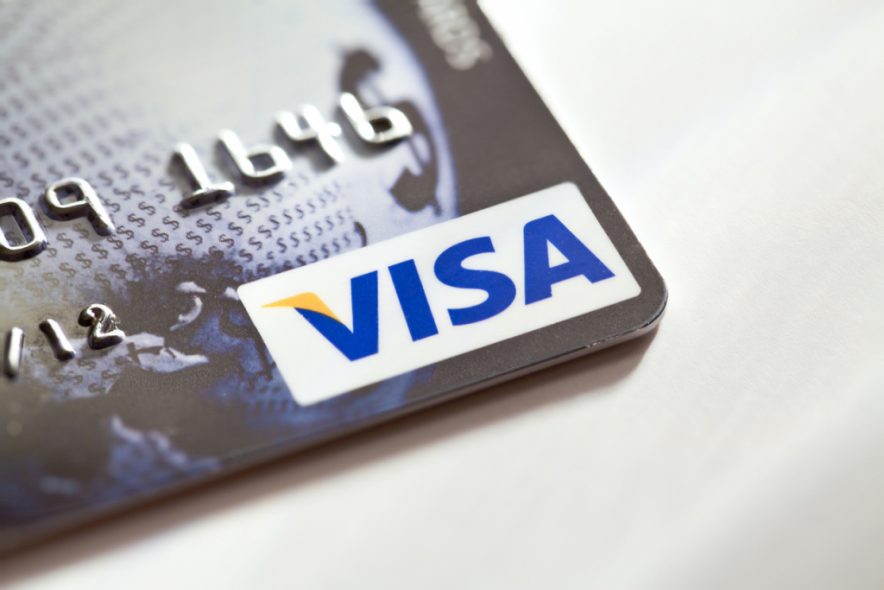
Visa CEO Discusses Europe, Digital Payment Opportunities
Speaking at the Bernstein 33rd Annual Strategic Decisions Conference Call at the start of June, Visa CEO Alfred Kelly has been talking about the challenges and opportunities that lie ahead and how digital is likely to play a much wider part in Visa’s future.
Kelly also took the time to discuss the acquisition for Visa Europe and gave an update on its progress.
Digital Payment Opportunities
During the conference call, Kelly expressed his hopes that Visa would ‘continue to be known as a digital thought leader”. Mr Kelly went on to discuss the opportunities that the digital space is going to offer moving forward.
The CEO explained that Visa is “looking two or three years ahead and being a thought leader for and with our clients as we all continue to think about how to take advantage of that growth.”
Kelly stated that “the explosion of the digital world which is still happening and still will be happening opens up a continued great opportunity to disintervene [ph] chaos and chat.”
Unlike some payment companies, Visa doesn’t appear to be nervous about newer digital rivals on the scene. Visa’s CEO said he wanted Visa to be an “open company” and suggested he would welcome a collaboration with digital start-ups in the payments sector, provided they added value.
And Kelly added that one of his priorities was appealing to the 2 billion people around the world who aren’t currently involved in the payments world.
Authorization & Security
Authorization was another issue that was discussed in detail; Kelly highlighted the imbalances in authorization rates regarding card not present and card present transactions. Visa’s aim is to increase authorization rates in the card present world, and Kelly said this was one of the motivations for Visa’s purchase of CardinalCommerce in January 2017.
However, it was almost inevitable that the issue of security would be discussed. Along with improving customer experience and enhancing authorization rates, security was listed as one of the three major concerns for Visa, and this has led to the company making a greater use of tokenization.
Detailing their strategy around securing data and its efforts towards tokenization, Kelly said:
“We want to devalue data in the open environment, so that if, in fact, it gets compromised, it is not usable. And there’s still a lot of work to do here. There’s millions and millions – or hundreds of millions of card on file records that sit out there that are not sufficiently protected, and those, over time, need to be tokenized in some shape or form as well.”
Kelly went on to explain that Visa Checkout was protecting e-commerce payments; Visa Checkout is currently in use by 300,000 merchants and 1,500 financial institutions.
Acquisition of Visa Europe
The Visa Europe acquisition, which was completed in 2016, was also on the agenda.
Kelly detailed how Visa had a “playbook” for moving from an association model to commercial enterprise model, and they are using this approach for Visa Europe.
Updating on the work so far, Kelly said a rationalization of processes and staffing has been conducted to reduce duplication, processes have been streamlined, and an improved expense profile would “help raise our margin in Europe over time”.
Visa is now concentrating on ‘the harmonization of systems” as Visa and Visa Europe currently operate separate structures. The work is scheduled to be completed by Fall 2018 at the latest, and the “core authorization clearing and settlement system” should be finished by the end of 2018.
Looking forward, Visa Europe is to benefit from some of tools already offered to other customers around the world, such as Visa Checkout and tokenization, as well as its Visa Direct service.
During the conference call, Kelly also stated that Visa would be focusing on how it can offer value to its clients: acquirers, banks and merchants. Kelly hinted that he’d like to pay more attention to merchants as he felt this is “an area that Visa hasn’t paid as much attention to in its ten years or nine years as a company as I’d like to see us do going forward.”
Visa’s Move Into Digital
Visa has already stepped into the digital arena. So far it has introduced the Visa token service, Visa payWave for contactless payments, Visa Checkout and the Visa Digital Enablement Program. Visa credit card payments are also accepted by some of the better known digital payment services like Apple Pay, Samsung Pay and Microsoft Wallet.
Earlier in 2017, Visa took its digital strategy forward by announcing a tokenization partnership with MasterCard. When details of the partnership were made public, Visa stated the aim was to “accelerate the adoption of payment tokens in Visa Checkout and Masterpass” and make tokenization more readily available to MasterCard and Visa users.
And as part of its digital strategy, Visa has announced that it is to offer “customized digital card management experiences for their customers” via its Visa token service. The service will be offered to consumers based in the United States and Australian from 2018.
Importance of Digital Payments
Digital/mobile payments are increasingly important to the likes of Visa due to their current growth and their predicted future use; Visa’s 2016 Digital Payment Study has examined how the use of digital payments in Europe had expanded considerably.
Commenting on the research, Kevin Jenkins, UK and Ireland Managing Director for Visa said:
“This data is a confirmation that the future of digital payments has arrived, with consumers across the length and breadth of the UK and Europe embracing a variety of new ways to pay.”
Jenkins added that it was the introduction of contactless cards that had resulted in the ‘normalization’ of digital payments.
Conclusion
Visa has already made a strong move towards digital payments. The conference call highlighted Alfred Kelly’s desire to incorporate digital further into the company and a willingness to work with other companies to achieve this.
The conference call also provided good news for clients who regular interact with Visa, with the CEO indicating that the credit card company planned to work closer with its merchants.
From the comments made in the conference call, general analysis and the direction technology is taking us in, it certainly appears as though digital payments are the way forward for companies like Visa.
Ready to get started?
Get in touch or create an account





